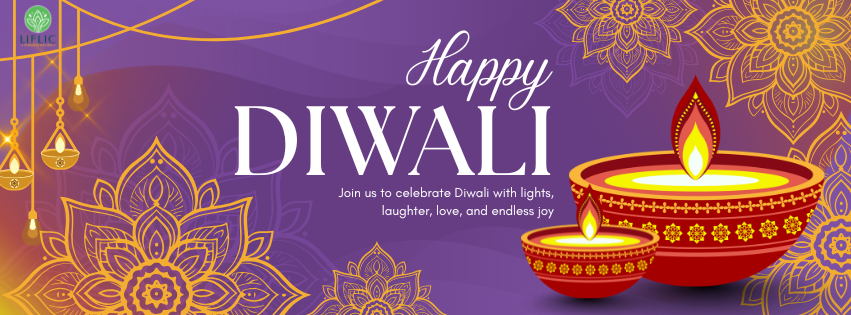
Diwali the Festival of Lights is not just about celebrations, sweets, or decorations. It is a festival that carries deep spiritual and health-related significance, rooted in Ayurveda, nature, and holistic living. Our ancestors designed every ritual of Diwali to synchronize our body, mind, and surroundings with seasonal and cosmic changes. Each day of the five-day celebration from Dhanteras to Bhai Dooj reflects a step towards physical purification, emotional balance, and spiritual rejuvenation.
Spiritual Meaning: Dhanteras, or Dhantrayodashi, marks the beginning of Diwali and is dedicated to Lord Dhanvantari, the divine healer who brought Ayurveda the science of life to humanity. He emerged from the ocean carrying a pot of Amrit, symbolizing eternal health and vitality.
Health Connection:
Wellness Message: Celebrate Dhanteras by adopting preventive health habits eat light, use natural oils, and honor the healing energy within you.
Spiritual Meaning: This day commemorates Lord Krishna’s victory over the demon Narakasura, symbolizing the destruction of darkness, ego, and impurity. Known as Choti Diwali or Kali Chaudas, it represents inner and outer cleansing.
Health Connection:
Wellness Message:
Naraka Chaturdashi teaches us to let go of inner negativity and start anew physically detoxified and mentally purified.
Spiritual Meaning: The main day of Diwali is dedicated to Goddess Lakshmi, the goddess of prosperity, purity, and well-being. Lighting diyas across homes invites divine light and positivity into life.
Health Connection:
Wellness Message: True wealth is not just money it is the peace of mind, health of the body, and joy of the soul.
Spiritual Meaning: The fourth day of Diwali, Govardhan Puja, honors Lord Krishna, who lifted Mount Govardhan to protect villagers from storms. It teaches us that nature sustains and protects us when respected.
Health Connection:
Wellness Message: Govardhan Puja reminds us to eat mindfully, thank the Earth for nourishment, and practice balance in food and life.
Spiritual Meaning: The last day of Diwali, Bhai Dooj, celebrates the sacred bond between brothers and sisters. The day is dedicated to love, protection, and emotional harmony.
Health Connection:
Wellness Message: Bhai Dooj is a celebration of relationships reminding us that emotional well-being is equally important as physical health.
The Deeper Ayurvedic Connection of Diwali
Diwali occurs during the seasonal transition from monsoon to winter, a time when the body’s Vata dosha (air element) tends to increase, leading to dryness, fatigue, and anxiety.
Every ritual of Diwali naturally supports balance:
Our ancestors designed Diwali as a natural wellness festival, aligning human life with the cycles of nature. Diwali is not just a festival of lights it is a festival of health, healing, and harmony. Each day teaches us a simple truth: prosperity begins with purity, and happiness begins with health. By celebrating Dhanteras for healing, Naraka Chaturdashi for cleansing, Lakshmi Puja for peace, Govardhan Puja for nourishment, and Bhai Dooj for emotional wellness we experience Diwali as it was meant to be: a journey from darkness to light, imbalance to harmony, and illness to health.
FAQ’s
Diwali is celebrated to honor the victory of light over darkness and good over evil. It signifies the triumph of truth, positivity, and knowledge. In different parts of India, people celebrate it for various reasons Lord Rama’s return to Ayodhya after defeating Ravana, Lord Krishna’s victory over Narakasura, or the worship of Goddess Lakshmi who brings prosperity and peace. The core message, however, is universal to replace negativity with light, hope, and inner purity.
Diwali is a five-day festival, and each day holds a unique spiritual and health-related meaning:
Lighting diyas is one of the most meaningful traditions of Diwali. The lamp represents the light of wisdom, positivity, and health that dispels darkness and fear. Traditionally, diyas made from clay and filled with ghee or oil also purify the air and add warmth to homes, creating a calm and healing atmosphere especially beneficial during the seasonal change from monsoon to winter.
Cleaning the house before Diwali goes beyond decoration it’s a ritual of detox and renewal. Removing dust, clutter, and old items symbolizes letting go of stagnant energy and emotional burden. It refreshes the mind and creates a positive, peaceful environment. This practice aligns with the Ayurvedic belief that a clean, organized space supports a healthy and calm body-mind balance.
Goddess Lakshmi symbolizes prosperity in all forms physical, mental, spiritual, and material. Worshipping her on Diwali is not just about inviting financial growth but also about embracing harmony, wisdom, and good health. When homes are filled with light, laughter, and gratitude, they naturally attract the divine energy that Lakshmi represents abundance in every aspect of life.
Copyright © 2025 Magar Natural Food | All Rights Reserved